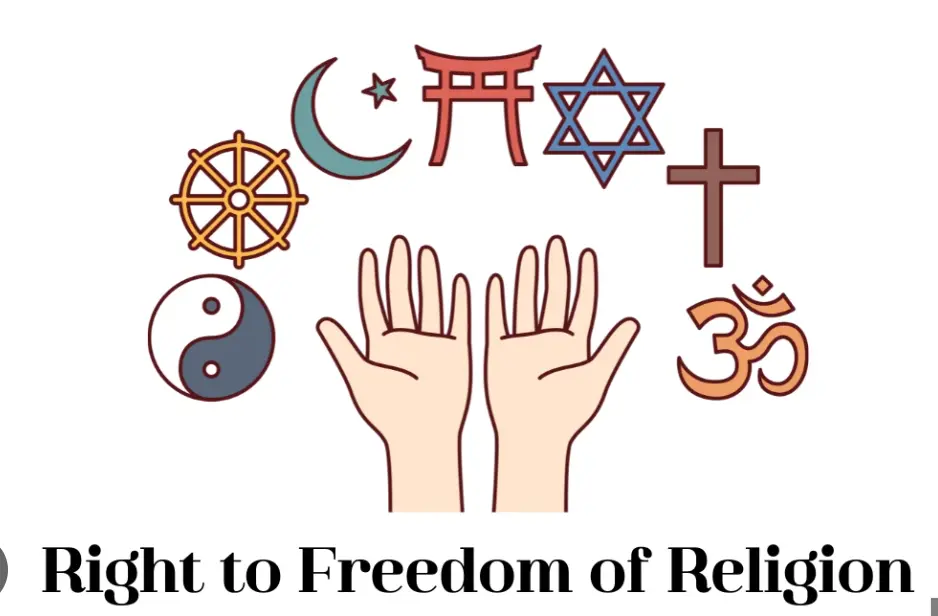- Introduction
- Article 25: Freedom of Conscience and the Right to Practice Religion
- Article 26: Right to Manage Religious Affairs
- Article 27: Freedom from Compulsory Taxation for Religion
- Article 28: Freedom from Religious Instruction in State-funded Institutions
- Balancing Rights and Restrictions
- Conclusion
Introduction
India is known for its diversity, especially when it comes to religion. The Constitution of India protects every individual’s right to religious freedom, ensuring that people can follow their beliefs without interference. This right is enshrined in Articles 25 to 28 of the Indian Constitution. Let’s break it down in a way that’s easy to understand.
Article 25: Freedom of Conscience and the Right to Practice Religion
Article 25 provides every individual the freedom of conscience and the right to freely profess, practice, and propagate their religion. This means that you have the right to not only believe in whatever faith you choose but also practice and share it with others. However, this freedom is not absolute.

The practice of religion is subject to public order, morality, and health. For instance, if a religious practice harms public health or incites violence, the state can intervene. Additionally, Article 25 does not allow religious practices that include unlawful activities like forced conversions.
Key Restrictions
Public order: Religious practices that disturb public peace can be curtailed.
Morality and health: Practices that endanger societal health or morality, like animal sacrifices in public places, can be regulated.
Economic, political, and secular activities: Religious institutions are not exempt from the law when it comes to financial and political activities. The state can make laws to regulate these activities. For example, the sacrifice of cows is prohibited in some states even though it may be considered a religious act by some communities.
Article 26: Right to Manage Religious Affairs
While Article 25 focuses on individual rights, Article 26 empowers religious denominations or groups. It allows them to:
Establish and maintain religious institutions
Manage their own religious affairs
Own property
Administer their property in accordance with law
This means that religious organizations have the right to manage their internal affairs and properties, but they must do so within the limits of the law. For instance, religious groups can run charitable organizations, but they cannot break laws or infringe on public health or order.
Also Read: Right Against Exploitation Article 23 – 24
Article 27: Freedom from Compulsory Taxation for Religion
Under Article 27, no person can be forced to pay taxes if the proceeds are specifically used for promoting or maintaining any particular religion. This ensures that the state remains secular and neutral, and no public money is used to favor any religion.
Article 28: Freedom from Religious Instruction in State-funded Institutions
Article 28 ensures that no religious instruction is provided in educational institutions that are entirely funded by the state. However, institutions established under private trusts or endowments that require religious instruction are allowed to do so. Importantly, no student can be forced to attend religious instruction or worship without their consent or the consent of their guardian.
Balancing Rights and Restrictions
The right to freedom of religion in India is broad but not without limits. While you are free to follow and propagate your religion, this freedom comes with responsibilities and boundaries. The government ensures that religious practices do not infringe upon the rights of others or threaten public welfare. India’s commitment to secularism is reinforced by these provisions, ensuring that all religions are treated equally and that no one religion dominates the public sphere.
Conclusion
Religious freedom is a core component of India’s secular democracy, and Articles 25 to 28 ensure that this freedom is protected while maintaining public harmony. As society evolves, these articles help balance individual rights with the needs of the community.
Feel free to share your thoughts or experiences related to the right to religious freedom in the comments below!
FAQs on the Right to Freedom of Religion
1. What does the Right to Freedom of Religion under Article 25 mean?
The Right to Freedom of Religion under Article 25 grants individuals the freedom of conscience and the right to freely profess, practice, and propagate their religion. However, this right is subject to public order, morality, and health, ensuring that religious practices do not harm society or others.
2. Can the government restrict religious practices in India?
Yes, the government can regulate or restrict religious practices that conflict with public order, morality, health, or other laws. For example, practices that involve unlawful activities or harm public safety can be restricted, even if they are religious in nature.
3. Are there any limitations on religious education in state-funded institutions?
Yes, under Article 28, no religious instruction can be provided in educational institutions wholly funded by the state. However, institutions established under private trusts that mandate religious instruction are permitted to offer it, but no student can be forced to participate without consent.
Also Read: Right To Freedom (Article 19 to 22)
Reference: byjus.com